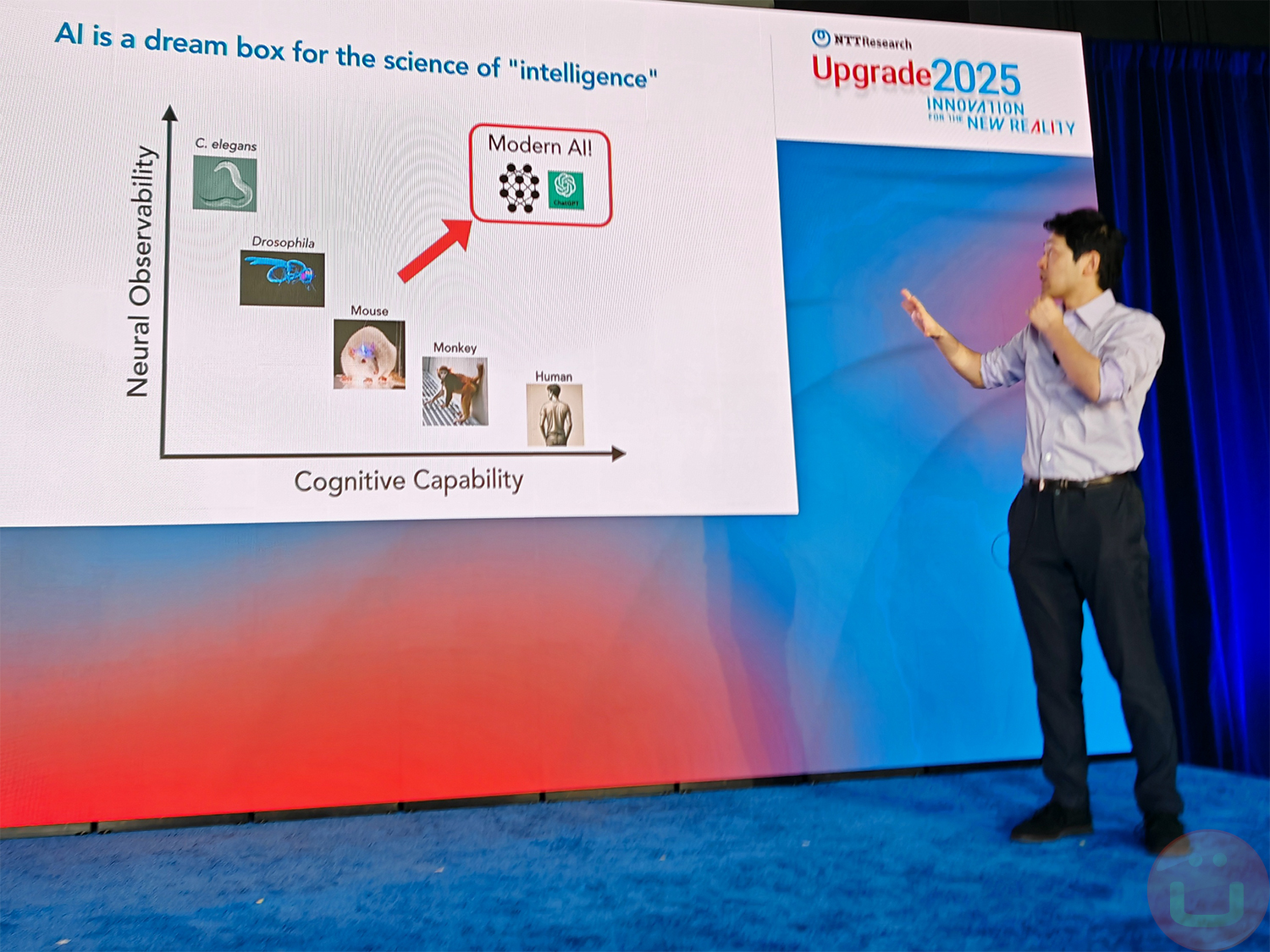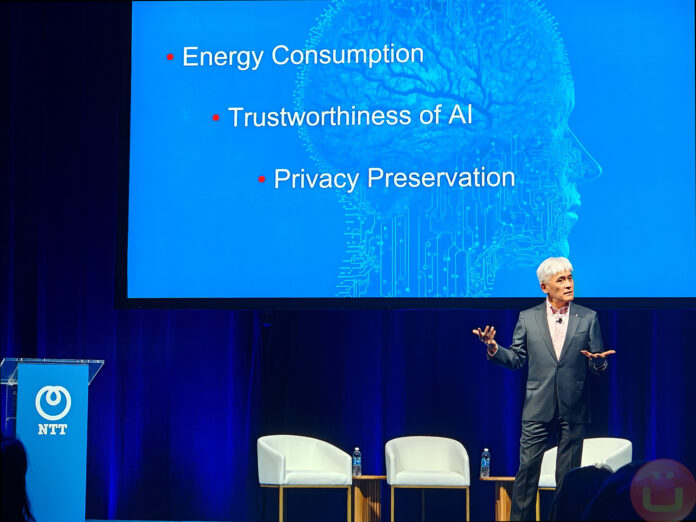NTT Research has announced the launch of its new Physics of Artificial Intelligence Group, an independent initiative spun out from its Physics & Informatics (PHI) Lab. The group was introduced as part of a broader unveiling at NTT’s Upgrade 2025 innovation summit, reflecting growing global interest in building safer, more trustworthy AI systems. The initiative aims to understand the inner workings of artificial intelligence, much like classical physics once decoded the behavior of falling apples.
NTT Research President and CEO Kazu Gomi, keynote speaker at Upgrade 2025
“We know that AI can tell you important things… but we don’t know exactly how that happens. So the notion of Physics of AI for us is: let’s uncover and understand how AI works.” – said Kazu Gomi, CEO of NTT Research
Gomi acknowledged AI’s tremendous potential to transform industries and daily life but also addressed key concerns that could hinder its progress, particularly energy consumption, privacy, and trustworthiness. With a team of over 50 world-class researchers and a mission to “upgrade reality,” NTT Research is doubling down on bold ideas that may take years to commercialize but promise to reshape the technological landscape in profound ways“. As Gomi noted, “We want to get ready for the future… and through science, we can make a big thing out of it.”
Led by NTT Research Scientist Dr. Hidenori Tanaka, an expert in physics, neuroscience, and machine learning, the new Physics of Artificial Intelligence group seeks to demystify the “black box” nature of artificial intelligence—particularly how AI models learn, process information, and make decisions. The group builds on five years of foundational work by the PHI Lab and continues a close collaboration with academic institutions, including Harvard University’s Center for Brain Science, Princeton University, and Stanford University.
The new group’s mission is threefold: to deepen understanding of AI’s internal mechanisms; to create experimentally controllable learning environments for AI, inspired by physics methodologies; and to bridge the trust gap between AI systems and human users. The aim is not just technical insight but also ethical AI integration, achieved through transparency rather than reactive fine-tuning.
NTT Research’s previous work includes a widely cited neural network pruning algorithm, a bias-removal technique for large language models recognized by NIST, and new studies into how AI forms conceptual understanding. The group’s research could influence future designs of more natural, efficient AI systems by leveraging similarities between biological intelligence and artificial neural networks.
As AI’s influence continues to expand across sectors, from healthcare to infrastructure, NTT Research President and CEO Kazu Gomi emphasized the importance of trust and ethics in AI development. “The new group aims to demystify concerns and bias around AI solutions to create a harmonious path forward for the coexistence of AI and humanity,” he said.

Dr. Hidenori Tanaka, Scientist, NTT Research, PAI Group, NTT Research
Filed in . Read more about AI (Artificial Intelligence) and Ntt.


